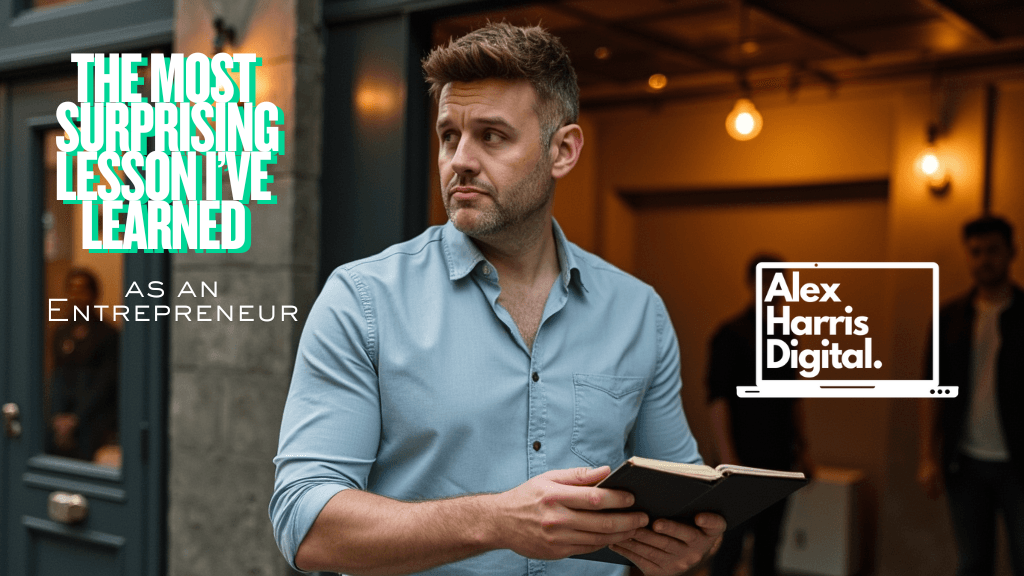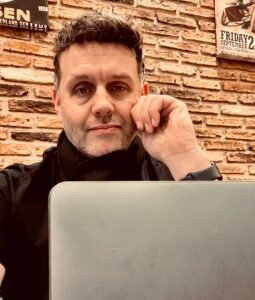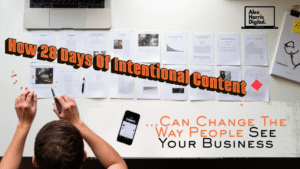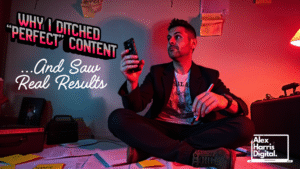The Most Surprising Lesson I’ve Learned as an Entrepreneur
What do you think is the most important lesson for an entrepreneur?
I thought I knew the answer. Freedom. Creativity. The chance to build something that mattered.
But the biggest lesson? It wasn’t about sales, or clients, or even the work itself. It was about people—and the strange, invisible lines that run through every business, no matter how polished it looks from the outside.
Let’s rewind to 2011.
I’d just finished my first year going solo. It was a year of graft. No clients at first. A lot of late nights, a lot of second-guessing, and a lot of time spent tweaking my brand—visually, forming ideas, everything. I was determined to get it right, even if that meant spending more time on my own website than on actual paid work.
But then, finally, it happened. My first big client.
It felt like a breakthrough. I’d made it. Or at least, that’s what I told myself.
Behind the Corporate Curtain
Walking into their office for the first time felt like stepping into a new world.
Slick branding. Everyone in smart shirts, tapping away at keyboards. I’d spent months networking and imagining what it would be like to work with “real” companies. This was it.
But the reality? It was nothing like I expected.
I was brought in to work in-house for a while, so I got a front-row seat to the way things actually ran. And what I saw surprised me.
The employees—talented, creative people—were nervous. Not just first-day nerves, but a constant, low-level anxiety. There was this unspoken sense that management was something to be wary of, that there was a gap between “them” and “us”.
It was strange. From the outside, the company looked confident. Inside, there was a gap. The staff perceived management as this distant, almost intimidating force.
But when I sat in meetings with the managers, I saw something totally different. They were just people. People trying to figure things out, sometimes winging it, sometimes worried they weren’t getting it right either.
That was the lesson.
Companies—even the ones that look like they have it all figured out—are just groups of people, all with their own doubts, blind spots, and stories running in the background. Many entrepreneurs, for example, struggle with imposter syndrome, that nagging feeling of not being qualified despite their accomplishments.
And the biggest gap? It’s not between the “successful” and the “struggling.” It’s between perception and reality.
I watched employees hold back ideas because they were scared of looking foolish. It was like everyone was acting in a play, reading from a script they thought they were supposed to follow. What was missing was a sense of psychological safety, the shared belief that it’s okay to take risks and be vulnerable in front of each other.
But the truth? No one really knew what was coming next. Everyone was just trying to do their best.
Freedom to Create
I also realised something else—something I’d never considered before. The employees’ perception of me was shaped by their own assumptions, not by who I actually was. Because I was coming in from the outside, as a freelancer, they thought I had a kind of power. Independence. Freedom.
But in reality, I was still finding my feet.
That opened my eyes. It made me realise how much of what we believe about each other at work is just that—belief. Stories in our heads.
Their perception, however, made me value something I’d taken for granted: I was the master of my own creativity. They saw me as someone who had the freedom to turn ideas into something real, while they felt boxed in by red tape.
It hit me: I could shape and direct my entrepreneurial business in whatever way I wanted. That freedom to build, to pivot, to create from scratch—that was my edge.
And that feeling was truly creatively liberating. Even now, it still bowls me over—how an idea can start in my head, get scribbled down on paper, and then actually become a real, breathing, living thing. There’s nothing quite like it.
It reminds me of the first time I got my hands on an Apple Mac for recording music. I couldn’t believe the freedom it gave me. I’d have an idea for a song, and within three hours, it could be recorded in the studio and burned onto a CD—back when CDs were still massive. That feeling of turning a spark into something you could actually hold in your hands? It’s the same buzz I get now in business, whenever an idea makes its way from my head out into the real world.
The Power of “I Don’t Know”
That experience changed everything for me. I stopped assuming that successful businesses were run by people with some secret sauce. I started to see behind the curtain. And it made me bolder.
If everyone’s improvising, why not improvise with heart?
It also made me more empathetic. Now, I look for the real stories under the surface. I pay attention to what goes unsaid, because those moments are where the real business happens. I’ve learned that business is fundamentally about people, not just processes or profits.
The best work happens when people feel safe to be honest. The companies that thrive aren’t the ones with the flashiest branding; they’re the ones where people feel seen.
If I could go back to 2011, I’d tell myself this: Don’t be intimidated. Everyone’s making it up as they go along—some just hide it better than others.
So, what’s the most surprising lesson I’ve learned?
It’s that the real power in business isn’t about authority or pretending you’ve got it all figured out. It’s about connection.
It’s about having the guts to say, “I don’t know, but let’s find out together.” As leadership expert Brené Brown argues, vulnerability isn’t a weakness but a sign of strength and courage. In fact, many successful leaders agree that “I don’t know” can be the three most powerful words in leadership.
It’s about turning down the volume on fear and turning up the volume on trust.
If you’re building something—on the Isle of Man, in the UK, or anywhere—remember this: The strongest businesses aren’t the ones with the least mistakes. They’re the ones where people feel safe enough to make them, learn from them, and keep moving forward.
Here’s to the surprising lessons, the honest conversations, and the courage to show up as you are. Because at the end of the day, we’re all just people trying to figure it out—and that’s more than enough.
Ready to turn your own ideas into something real? If you want a digital marketing strategy that’s built around honest connection, creative freedom, and real results, check out my Digital Marketing Strategy packages for Isle of Man and UK businesses:
Let’s build something that matters—your way.




